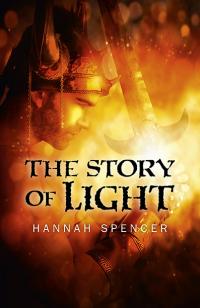

fine and dandy. A story where nobody wants anything, because life is peachy.
Our hero gets up in the morning, has breakfast with his non-squabbling family. He goes off to work in his perfectly reliable car and there are no roadworks on the way. At work, his boss, his co-workers and everyone he meets are all perfectly pleasant. He goes online to check his bank balance: he has easily enough money till the end of the month. He buys his wife some flowers and she’s pleased with them. He decides to mow the lawn, which was fairly neat anyway, but needed a little trim. The mower works just fine and the weather is pleasant enough so he doesn’t break out in a sweat. He decides he’ll fire up the barbecue and he and his wife share a bottle of wine.
Whilst that sounds like a pretty decent life, it’s not fiction. There’s no dramatic tension for our main character. Yes, we can perhaps write some beautiful prose. You’ll be able to hear the buzzing of the lawn-mower, smell the sizzle of the sausages, taste the chilled Chablis as our hero rolls it round his unfurred tongue, but you’ll be bored stiff. There’s no yearning, nothing missing from this character’s life. All the reader is going to say is ‘So what?’
Contentment may be fine in real life, but fiction is not real life. Fiction is where we pile on the agony and make our characters suffer. And we pile on the agony by making a character want something and putting obstacles in their way as they try to reach their goal.
In Herman Melville’s Moby Dick, Captain Ahab wants revenge on the great white whale that has made off with his leg.In F. Scott Fitzgerald’s The Great Gatsby, Jay yearns for Daisy. Jay Gatsby’s great desire to live a life of wealth and luxury is to prove to Daisy that he is good enough to marry into her refined family. Even in comedy, we need motivation. Mrs. Bennet in Pride and Prejudice has five daughters, all of whom need marrying off. She’s motivated by trying to find husbands for them all.
If we take two of the staples of fiction, the romance novel and the detective story, it’s quite easy to see the main characters’ motivation: the girl wants the boy or the detective wants to catch the criminal.
Be Specific But we need to be more specific. Whilst we can say in general terms that the heroine of a romantic novel wants love, we have to force ourselves to be more precise with our motivation. ‘Love’ is too vague. She could stick an advert on the Internet and just take up with the first bloke who came along. No, our heroine must want precisely one person. She may waver and dither between two or three choices, as happens to Elizabeth Bennet, but eventually she has to plump for the right one. It’s not just any of the three that will do; it has to be Mr. Right, in this case Mr. Darcy. Similarly, our detective isn’t going to make do with collaring the Garden Gnome, Nabber, when there’s a serial killer on the rampage. Captain Ahab isn't going to settle for just any large aquatic mammal that swims past the Pequod.
Give us some jeopardy. The most potent motivational force of all is fear. Fear comes in all shapes and sizes:
If you don’t catch the serial killer, he’ll do it again. If you don’t find the bomb, it will go off. If you don’t use clever questioning in court, the criminal will get off scot free. If you don’t find Mr. Right, you’ll be the only singleton at the party. If you don’t find work, you’ll lose your house. If we don’t get her to the hospital in time, she’s going to die. If you don’t get your hanky out in time, you’re going to sneeze on your boss’s lunch.
Of course, it’s the character’s reaction to that fear that makes your character an individual. It’s the way in which they go about assuaging their fears that makes us want to read on. If at every twist and turn you place your character in jeopardy, then you will test them to the full and they will resonate more strongly with the reader.
Be nasty. This means you have to be as nasty as you can to your characters. If you make life easy for them, then we can’t root for them. They’ll just be mowing lawns in their happy suburb.
Imagine if our serial killer just walked through the door and gave himself up? Where’s the dramatic tension? He’s done the detective’s work for him. No, we have to put obstacles in his way. If someone does walk in through the door claiming to be the killer then it has to be a hoax confession. But it has to be a good hoax. Perhaps the confessor knows details that the police think are not in the public domain. They are pretty convinced until something happens to disabuse them — another killing, or the realisation that there is a leak from the police station and gory details are all over a macabre Internet chat-room site. We can throw up other obstacles — a killing that looks initially as if it’s part of the same sequence, but which isn’t. The arrest of a very likely suspect, who turns out to be innocent. Someone lies convincingly to give the real antagonist an alibi.
Motivation changes as the story progresses. Your detective finds out who he thinks did it, his motivation then changes from finding the perpetrator to proving him guilty. He essentially does this, but the guilty man walks free from the court on a technicality. So your detective takes the law into his own hands. His motivation is now to kill the villain. He kills the villain. Now his motivation is not to get caught himself. He makes it look like suicide. Now his motivation is to act normally … and so on.
In addition, every other character in a scene must have some kind of agenda as well. Your heroine's agenda when she goes to the party might be to cheer herself up by hanging out with some old friends, but then she meets a man she fancies and her motivation changes to trying to get him to ask her out.
Fair enough, both examples may seem hackneyed, but the point is that everyone has a motivation in the scene. It creates conflict, and without conflict we have no drama, we just have barbecuing and lawn-mowing and sips of Chablis.
So, every character needs something, and what they need changes as your story unfolds. And every character in every scene you write must have an agenda to be in that scene. That way, your characters exist for a dramatic reason and the reader feels something for them. Ask yourself what every single character you create wants, then try your damnedest to stop them getting it.
This article was first published in The Writer's Wheel Magazine, Issue 4
Categories:
0 comments on this article







